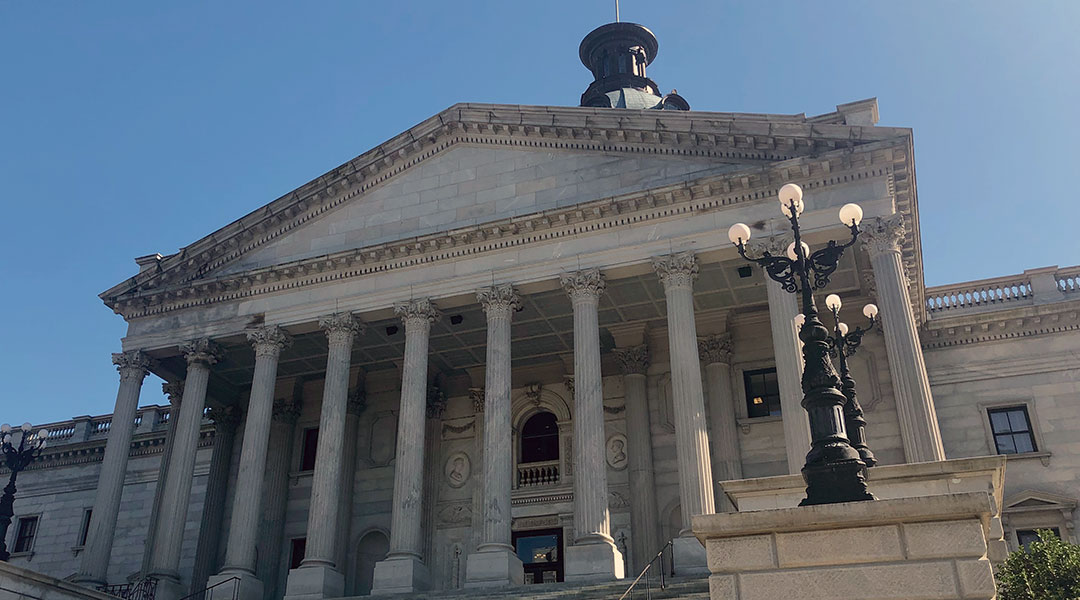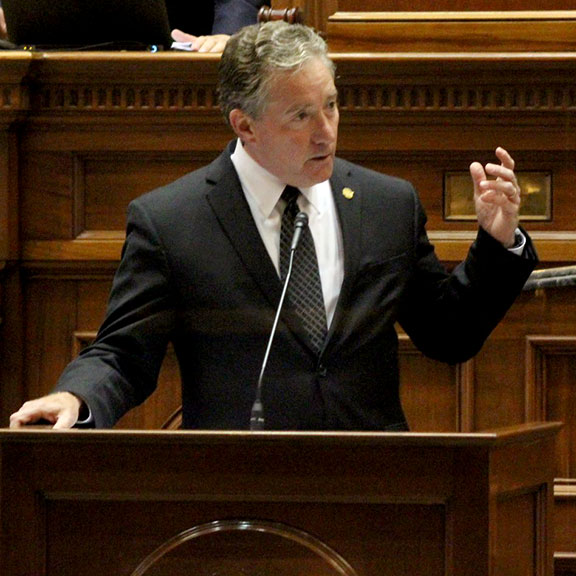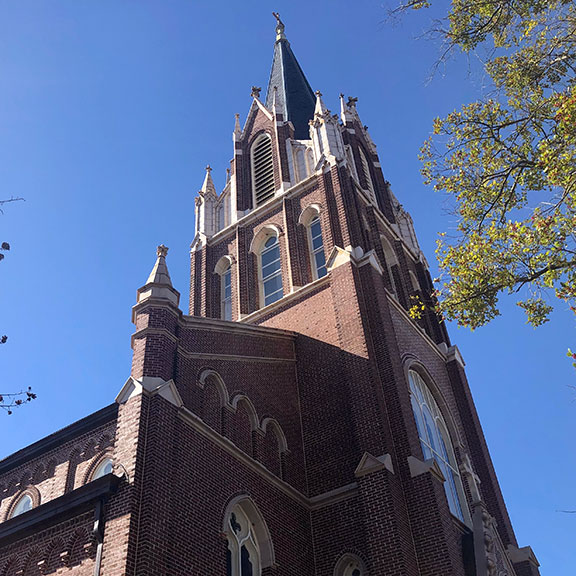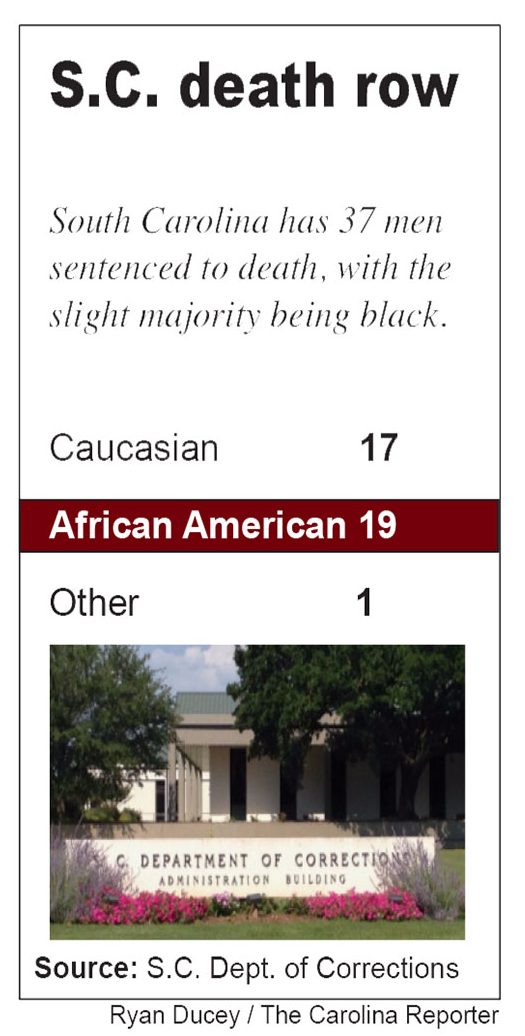Due to a shortage of lethal injection drugs, South Carolina has been unable to perform a criminal execution since 2011. Photos by: Ryan Ducey
State legislators in South Carolina this week voted to bring back the electric chair and the firing squad as the state’s primary methods of criminal execution.
The execution bill results from a nationwide struggle for states in acquiring the drugs needed to perform lethal injections, which has been the primary method of criminal executions in South Carolina since 1995. While some states were able to preserve injection formulas until recently, South Carolina has been unable to secure the drugs since 2013. Since then, the state’s death row roster has grown to 37 men.
“Families are waiting. Victims are waiting… The state is waiting,” said S.C. Sen. Greg Hembree, R-Myrtle Beach, one of the bill’s co-sponsors. “This bill enables us to carry out executions, whether we have the drugs or not.”
Under current legislation, all inmates sentenced to death choose between lethal injection or death by electrocution. If they choose lethal injection, the state does not have the right to force them to die by electrocution. As South Carolina faces a drought of lethal injection drugs, several criminals have been able to postpone their executions indefinitely, to the dismay of conservative lawmakers like Hembree.
The former attorney hopes the bill will quickly pass through the General Assembly to prevent further delays in the criminal execution process.
When the bill reached the floor, Hembree encouraged legislators with reservations to vote for the bill, remarking that Tuesday’s assembly was “not the time” to debate the death penalty’s morality.
“There’s nothing pleasant about it. [Executions] are gruesome, and they’re sad and tragic in a way, but it’s justice,” said Hembree.
However, several Democrats questioned this line of thinking, especially when just last month Republican lawmakers were championing an anti-abortion bill for “protecting life.”
Sen. Kevin Johnson, D-Manning, called attention to this conflict of ideals while also reminding his constituents of the tragedy of George Stinney. Stinney was a 14-year-old African American accused of murdering two white schoolgirls and sentenced to death in the electric chair in 1944.
Over time, evidence in Stinney’s defense was gathered and shown to a state judge, who overturned Stinney’s conviction, but it was too late. The teenager had been electrocuted almost 70 years earlier.
“You think it was bad to abort a baby? Think how much worse it is to kill a person who, when all is said and done, is innocent,” said Johnson.
Regardless of these consequences, South Carolina Gov. Henry McMaster argues that the death penalty is necessary to maintain order and discourages crime. McMaster has repeatedly asked lawmakers to pass a new death penalty bill since taking office in 2017. After an impassioned speech in his public address last month, he may finally get his wish.
“I ask the General Assembly: fix this. Give these grieving families and loved ones the justice and closure they are owed by law,” said McMaster.
However, the idea that the death penalty prevents violent crimes has been contested by several Democratic legislators, who fear that the bill would disproportionately affect people of color.
“There’s a systemic or disparate impact again among poor people and African Americans, and this bill plays right into that,” said Sen. Karl Allen, D-Marion.
Allen, an African American, is one of only 16 Democratic senators in the current General Assembly. He and his colleagues have been frustrated with the Republican majority’s attitude on crime-related legislation like this bill.
“There is a mindset that still exists in 2021 that we need to be hard on crime, as opposed to smart on crime,” said Allen. “Any intelligent, smart individual knows that the death penalty does not serve as a deterrent to crime.”
Gary Votour, a Democrat who hopes to challenge Gov. Henry McMaster in the 2022 gubernatorial election, agreed with Allen’s assessment. Votour pointed out other conservative-leaning states have recently scaled back or eliminated the death penalty without suffering substantial increases in crime.
“If Virginia can abolish the death penalty, any state and the federal government can do it too,” said Votour in a tweet. “[It is] a holdover from the practice of lynching.”
Despite their party’s stance on the death penalty, some state Democrats have acknowledged that South Carolina is not likely to abolish the death penalty without a federal mandate.
These legislators, led by Rep. Dick Harpootlian, D-Richland, broke party lines and supported the death penalty bill’s firing squad amendment. Harpootlian says he opposes the death penalty but believes the firing squad is the lesser evil compared to the electric chair.
“[The electric chair] is a horrible, horrible thing to do to another human being,” said Sen. Dick Harpootlian. “[The firing squad] is actually the least painful and least suffering of any method of death. If we’re going to have [the death penalty], it should be humane.”
A surprising critic of the bill has been the Roman Catholic Diocese of Charleston. The Diocese just last month commended conservative legislators the passage of the anti-abortion bill. Now, the Diocese urges those same lawmakers from both parties to vote against the death penalty bill, regardless of the execution method.
“It is long past time to abolish the death penalty in South Carolina, not to find new ways to execute our brothers and sisters, including by firing squad,” said a statement released by the Diocese March 3. “Every person is created in the likeness of God; their lives should be protected from the time of conception until natural death.”
However, despite the Diocese’s efforts and concerns from Democratic lawmakers, both the firing squad and the electric chair are poised to become the primary forms of execution in South Carolina.
Thanks to bipartisan support from Democrats like Harpootlian and full support from the Republican majority, the bill has already passed through the State House of Representatives, and will likely be voted into law in the next few weeks.
Sen. Greg Hembree hopes the new bill’s alternative execution methods will return the criminal execution process to its normal schedule. Photo courtesy: Office of Senator Greg Hembree
S.C. Gov. Henry McMaster believes the death penalty is necessary for deterring crime and ensuring justice. Photo courtesy: South Carolina Governor’s Office
The Roman Catholic Diocese of Charleston has been a surprising critic of the execution bill, despite supporting many of the same legislators last month during the anti-abortion bill vote.






